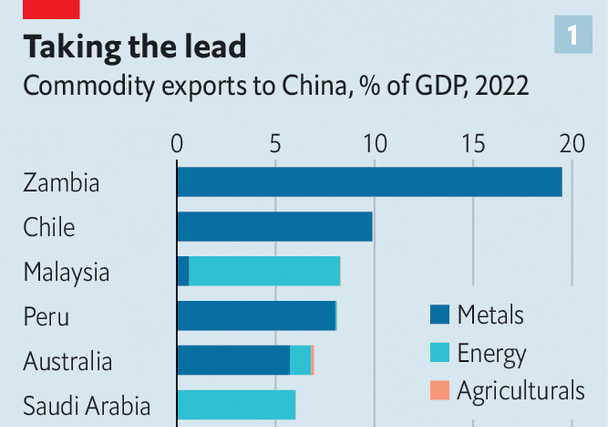Cryptocurrency exchange platform Coinbase can now offer crypto futures to customers in the US, after winning regulatory approval from the National Futures Association (NFA) to operate a futures commission merchant (FCM).
FCMs solicit and accept trading for future contracts with customers. All FCMs must meet a number of guidelines set out by the Commodity Futures Trading Commission (CFTC), including maintaining a minimum of $1,000,000 in adjusted net capital; ensuring a monthly submission of financial reports to the CFTC and keeping accurate records of customers.
Approval for US customers to access regulated crypto derivatives should enable more people to safely access the crypto economy in the US.
The move comes as a surprise to some, in part due to Coinbase’s ongoing lawsuit with US regulator, the Securities and Exchange Commission (SEC), which alleges that it has been operating its crypto asset trading platform as an unregistered national securities exchange, broker, and clearing agency. Much of the case will see a debate on whether crypto assets should be considered securities or commodities in the US.

While the news is positive for Coinbase, Jason Allegrante, chief legal and compliance officer for all-in-one platform for building your digital asset business Fireblocks, explains that news is unlikely to impact the existing lawsuit: “It is highly unlikely that this approval will help Coinbase in its case against the SEC. That case deals with specific allegations under US securities law, while NFA-approved futures relate to commodities.
“Given the regulatory clarity that already exists around the commodity status of Bitcoin, it is likely that this will be the first, and potentially only, futures contract offered by Coinbase.”
“Paving the way for further innovation in crypto-based financial products”
Cuautemoc Weber, co-founder and CEO of decentralised blockchain infrastructure node provider Gateway.fm, explains: “Coinbase obtaining the regulatory green light to offer crypto futures trading signifies a significant step in the ongoing legitimisation of cryptocurrencies.

“This move has the potential to attract more traditional investors into the crypto market and drive mainstream adoption. The news also gives expression to the maturation of the industry, and the progressive convergence of traditional finance and digital assets that we are witnessing. Looking ahead, this development could pave the way for further innovation in crypto-based financial products and services, shaping the evolving landscape of digital assets more broadly.
“The SEC’s lawsuit against Coinbase is somewhat of a watershed moment for the sector, as it could help establish regulatory clarity for the entire cryptocurrency industry.
“The outcome may define how cryptocurrencies are classified and regulated in the US, impacting exchanges and market participants. This lawsuit could set a precedent for future legal actions and shape the direction of crypto regulations moving forward, ultimately influencing the industry’s long-term viability, investor confidence, and growth prospects.
“This move demonstrates Coinbase’s commitment to diversifying its offerings, expanding its user base, and establishing a stronger presence in the evolving crypto landscape. It may also open doors for Coinbase to introduce more sophisticated financial products as part of its future roadmap, solidifying its position as a pioneering platform in the dynamic crypto industry.”
“Good for Coinbase; excellent for crypto markets”
Chris Perkins, president and managing partner at crypto asset-focused investment firm CoinFund, said: “FCMs form a crucial part of market structure because they are required by the CFTC and serve to intermediate the system.

“In derivatives markets in the US, those who aren’t members of clearing houses, need an FCM to serve as an intermediary and guarantor.
“Clients need to find an FCM to access futures and cleared derivative markets. However, FCMs have been slowly dying and consolidating. They have decreased over the last two decades from a high of 188 in 2004 to just 61 by 2022.
“Meanwhile, segregated client assets have skyrocketed, rising from $60billion in 2002 to $500billion by 2022. With high fixed compliance costs, the big have gotten bigger.
“The big banks hold the preponderance of segregated client money. Banks are subject to punitive Basel regulatory capital requirements, making crypto derivative markets nearly impossible to scale and offer. Moreover, legacy batch operational infrastructure cannot keep up with the volatility of crypto markets.
“This has left crypto market participants in a bind – unable to access derivative markets to hedge risk, especially in a way that segregates and protects their collateral.
“In jurisdictions that lack the requirement for FCMs, direct access models have resulted in liquid derivative markets that allow market participants to hedge risk. I testified before Congress suggesting that the US move away from a mandated intermediary model. While still a viable solution in my mind, politically it will be difficult to adopt, because of the damage done by another exchange.
“Enter Coinbase. It now has an approved, compliant FCM and understands the nuances of crypto markets. It’s an important step forward in cultivating deep, liquid derivative markets. This should be very good for Coinbase, and excellent for crypto markets.”
“A significant milestone in the cryptocurrency industry”

Denis Sklyarov, co-founder and CEO of WiFi Map, a crypto-centric DeWi app, said: “The approval granted to Coinbase for listing regulated and leveraged crypto futures in the US is a significant milestone in the cryptocurrency industry.
“It demonstrates the growing acceptance and integration of digital assets into traditional financial markets. As WiFi Map, we applaud this move, which adds another layer of legitimacy and accessibility to the world of cryptocurrencies.
“This development aligns with our mission to empower users by providing them with innovative and secure ways to engage with the digital economy. We look forward to witnessing the positive impact of this step on the broader adoption of cryptocurrencies and blockchain technology.”
“A step in the right direction”
Taylor Johnson, co-founder of Solana-based DeFi options protocol PsyFi, said: “Coinbase’s approval for US cryptos futures trading is likely to bring more liquidity and volume to US markets as retail investors can use leverage and short supported assets.
“However, the important takeaway is that it shows the US has a regulatory agency that is willing to work with nascent industries and it’s likely to put some pressure on the SEC to bring more clarity to their application process and regulation.
“It’s worth noting that Coinbase only offers dated futures, which are very different from perpetual futures that dominate the global crypto derivatives market. This is certainly a step in the right direction, but I believe they are just getting started.”


The Most Read
Сryptocurrencies
Bitcoin and Altcoins Trading Near Make-or-Break Levels
Financial crimes
Thieves targeted crypto execs and threatened their families in wide-ranging scheme
Financial crimes
Visa Warning: Hackers Ramp Up Card Stealing Attacks At Gas Stations
News
Capitalism is having an identity crisis – but it is still the best system
Uncategorized
The 73-year-old Vietnamese refugee is responsible for bringing Sriracha to American consumers
Uncategorized
Electric Truckmaker Rivian, Backed By Amazon, Ford, Raises Whopping $1.3 Billion